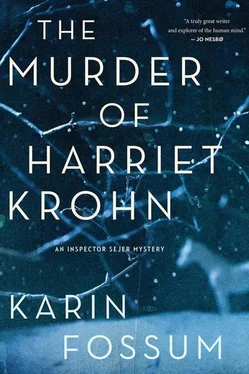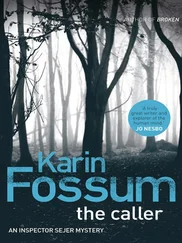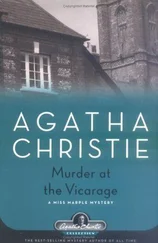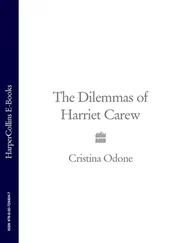He tries to lift his mind, to move to somewhere else, but it’s quite an effort. My mother gave birth to me in 1963, he thinks, clutching at the images. I was a chubby baby, a nice child, a considerate boy, and later a pleasant young man. A good man as people used to say. Before I started gambling, before I borrowed money from all those people I never repaid. I met Inga Lill and we had Julie. But Inga Lill is dead now, and I can’t manage alone. At the thought of Inga Lill, he gets knotted up inside, he wipes an angry tear from his cheek. Miserable, he holds his face once more, wanting to force his hand back down where it should be, to become the same man he used to know, the one who could look candidly at the world. He grits his teeth and feels the rough stubble rasping beneath his fingers.
His gaze wanders around the room and fixes on a picture that Julie drew in her childhood. A mother and a father and a child, close together beneath a huge sun. That’s not how it is anymore, he thinks. I ruined it all and she hasn’t forgiven me. He recalls the first time he saw her, a well-formed infant fifty centimeters long. When she was a year old, Inga Lill started giving her porridge and she put on loads of weight and looked like a little pink doughnut. Six months later, when she began to walk, she slimmed down. At the age of five, she began riding, and all the hard work soon showed as small, hard muscles, particularly in her thighs and upper arms. She had biceps like a boy’s.
He clenches his fists. He thinks, if the police don’t harass me, I’ll hound myself, all the way to hell. He stares out of the window, bewildered, wishing the world were pristine. Wishing that November 7 had never been. His eyes move on. An old sea chest stands by the wall. He inherited it from his parents. Over the years, it has been painted so many times that an unknown number of colors lie hidden beneath the present dark green. The chest functions as a seat. It’s a roughly made piece of furniture, not especially elegant, but very spacious and solid. He used to sit on it as a child with dangling legs. Now the chest is full of footwear and other things. Brushes and cloths, wax and shoe polish. And the bag containing Harriet’s silver.
Charlo stares at the chest. He tears himself loose from the kitchen unit, crosses the room, raises the lid, roots among the boots and brushes, and takes out the bag. A green-and-white checkered bag with the initials “J.T.” embroidered in red. It’s heavier than he remembers. He tips the contents onto the kitchen table: knives, forks, and spoons. Cream jug and sugar bowl, candlesticks and vases. Because it’s all tightly packed in sealed bags, the silver is as bright as new. Maybe Harriet collected it as a kind of investment. Maybe it was handed down to her by her mother or someone else. He pulls a knife out of the plastic and holds it up to the light. Checks the hallmark. There’s not a scratch on the blade. He’s not familiar with the pattern, but it looks old and expensive. It’s worth a lot presumably.
A fence, he thinks. The weak link, do I dare? Without someone to launder it, the silver is worthless. But, after all, a fence is in business, so we must be able to trust one another. He should call; he has a number in his wallet. But he puts it off. He wants everything to settle down. No, things will never be calm again. He must battle this storm for the rest of his life, and he has no stays anymore. It’s as if he’ll take off at any moment and fly away like an empty paper bag. His hands begin to shake. Another landslide is loosed inside him when he thinks back and remembers. He leans across the table and takes a few deep breaths. The things he took from her jewelry box have hardly any value: a string of pearls, imitation presumably, a couple of rings, a silver bracelet and some brooches, one an ugly old cameo. But the gold watch. He picks it up and weighs it in his hand. It’s as heavy as lead. Fifty thousand at least, perhaps seventy or eighty. He stands there a long time, looking at his spoils. He counts forks and knives and spoons, trying to calculate mentally. Then he packs the jewelry and silverware away in the bag and replaces it in the chest.
He goes to the kitchen unit and takes a loaf from the drawer. He begins to slice it, focusing on the concrete thought that he needs food. A good grasp of the loaf in the left hand, the knife in the right. I must concentrate on this now, he thinks. I must act, do the little things. I must behave like the living. The fact that I’ve killed makes me feel different. Other people can’t see it; I know that. And I can’t reveal it, either. I must carry this from now on, and yet it doesn’t feel like a weight. It’s more like a blaze-mark, a notch. He imagines a notch cut into his heart, and that when he dies and they open him up, they will lean over his corpse and see the vile stigma. His heart revealed. Disfigured. Ah! they’ll think, that’s how it is; he’s carrying a burden of guilt! His hands begin to shake again and the knife ceases its motion in the bread. For a while, he stands immobile, frozen in this position.
At last silence falls within him, and he cuts some slices of Jarlsberg and lays them on the bread. As he picks up his plate, he feels his body behaving oddly. It has no coordination and is unpleasantly slack. The feeling is reminiscent of when he was a teenager and growing too fast. His joints feel weak and his thoughts wander. As if the link between body and soul has been severed. Yes, he thinks, contact has been broken. My soul is drifting alone in a dark place with whispering voices, and my heart has a notch in it. With some effort, he goes into the living room, seats himself in his comfortable chair, and presses his knees together. Puts the plate on his lap. He bites into the dry, hard crust. He hears the traffic outside, and it comes as a relief. He’s frightened of total silence — so much can grow out of it. From now on, he thinks of other people as far removed from himself. It’s not a guilty conscience that troubles him, nor the pangs of remorse. But an overwhelming feeling of loneliness.
He phones Bjørnar Lind again and after the fourth ring it’s answered. This is his great moment; this is what he’s been waiting for and dreaming of.
“Hi there, this is Charlo. It’s been a long time!”
Silence at the other end, just as he’d anticipated. And then an irritated, wheezing sound.
“You never stop trying, do you? The tap’s been turned off, Charlo. You’re not getting a single øre.”
Charlo sits down in the chair at the desk and rests his elbows on the tabletop. He opens the drawer slowly and takes out the money, caressing the notes with his fingertips. The thin paper crackles.
“Whereabouts are you?” Charlo’s voice is relaxed and low. He’s in no hurry at all, because he wants to draw the conversation out and enjoy it.
“I’m back home,” Lind replies. “I’ve been in Sweden covering the harness racing. What have you got yourself into now?”
“Nothing. I don’t need you for anything at all.”
Again there’s that wheezing sound at the other end of the line.
“So why are you calling me then?”
Lind’s voice is hard and sullen, and Charlo’s head is as clear as crystal.
“There’s something waiting for you here. I just wanted to let you know. You can come and get it anytime.”
“Get what?” Lind asks. His voice still has a skeptical note, but now it’s rising, sounding hopeful.
“Two hundred thousand,” says Charlo. “All beautifully bundled up.”
There’s a long pause.
“Pull the other one!” says Lind in disbelief.
“You can drop that jokey tone,” Charlo says, bridling. “And make sure your people stay away from me. I haven’t had a proper night’s sleep for months. Are you coming or not?”
Читать дальше












